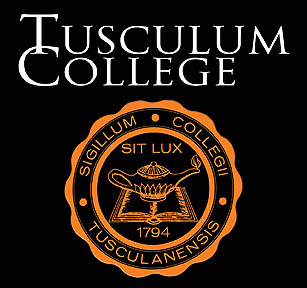 The Tusculum College Board of Trustees met on Friday and Saturday, February 11-12. Several reports were given reflecting the college’s improved financial situation, due in part to the continuing trend of increased enrollment on the residential campus.
The Tusculum College Board of Trustees met on Friday and Saturday, February 11-12. Several reports were given reflecting the college’s improved financial situation, due in part to the continuing trend of increased enrollment on the residential campus.
Dwight Ferguson, chairman of the Finance Committee, reported that Tusculum College is in a much improved financial position over a year ago, attributed to steady enrollment on the residential campus and steps that have been taken to improve many administrative processes, including the budgetary process. Additionally, the total endowment of the college is up by 4 and one-half percent.
According to Tusculum College President Nancy B. Moody, the financial position has improved, all while the college has made an increased investment in academic programs of more than $200,000 over the prior fiscal year.
“We have invested in the heart of Tusculum College, our academic programs and our students, and we have still improved our financial situation considerably in the past year,” said Dr. Ken Bowman, chairman of the Board of Trustees. “We are very pleased with the efforts of not only the leadership, but of faculty, staff, alumni and friends of the college who helped get us to this point.”
Dr. D. Larry Brotherton, chairman of the Enrollment Committee, reported that deposits for the upcoming academic year are ahead of this time last year and currently residential admission is ahead 436 applications in comparison to the same period last year. Additionally, while housing occupancy is at 98 percent, all students have now been moved back to campus, reducing the need for housing at the Comfort Inn that was utilized during fall semester.
The Board of Trustees continued their Strategic Planning efforts through an update on the progress toward attainment of current year objectives and a visioning process led by President Nancy Moody titled “Vision 20/20,” in which board members looked past the traditional five-year planning span into what Tusculum College might be like 10 years from now. Input from this session, along with a strategic planning session that combined staff, faculty and board members earlier in February will be incorporated into the updated Strategic Plan 2011-2016.
“It is important that we think long-term in order to lay the groundwork for growth we want to see down the road,” said Moody. “We need to not only focus on what we need to do now, but also what we need to get in place to be ready for changes we will face 10-20 years from now.”
Dr. Jerry Ward, chairman of the Academic Affairs Committee, reported that the Graduate and Professional Studies program will be beginning a new program this spring in offering a bachelor of arts in psychology with a concentration in behavioral health. The addition of the program will provide increased options for adult students looking for a degree program that works with their schedule as working adults.
In other action the Board approved the awarding of diplomas to 320 graduates, pending successful completion of spring course work and faculty approval, for the Saturday, May 7, Commencement ceremonies.
Chairman of the Athletics Committee Mark Williams reported that since the beginning of the fall semester student-athletes on the Tusculum College campus have contributed 1,301 hours of community service through the efforts of the 14 sponsored sports. Beginning in March, student-athletes will assist with activities to enhance attendance at athletic events and to draw the community to campus through their schedule of three community engagement activities.
From the Institutional Advancement Committee, Committee Chairman Angelo Volpe reported that all fundraising goals are on track to be met this year, with some completed campaigns already ending with dollars raised above the goal.
Reporting on behalf of the Alumni Executive Board, Dr. Bob Pollock, a 1965 alumnus of Tusculum College, talked to the Board about the role of alumni in assisting with areas of need at the College. Pollock said that members of the Alumni Executive Board wanted to assist with alumni giving, as well as act as an idea exchange and provide pertinent information to the College.
The Board also heard a presentation from Dr. Bill Garris, assistant professor of psychology, that explored the relationship between the ancient Roman philosopher Cicero and Tusculum College.
Tusculum College is named for a hilltop city in ancient Rome that has a history intertwined with the lives of its residents. Two thousand years ago, one of its most notable residents, Marcus Tullius Cicero, found in Tusculum a sanctuary where thoughtful statesmen could find refuge, study and write, while governmental breakdown and societal dissolution ravaged the population centers of Rome.
The next meeting of the Tusculum College Board of Trustees is May 20-21, 2011.


